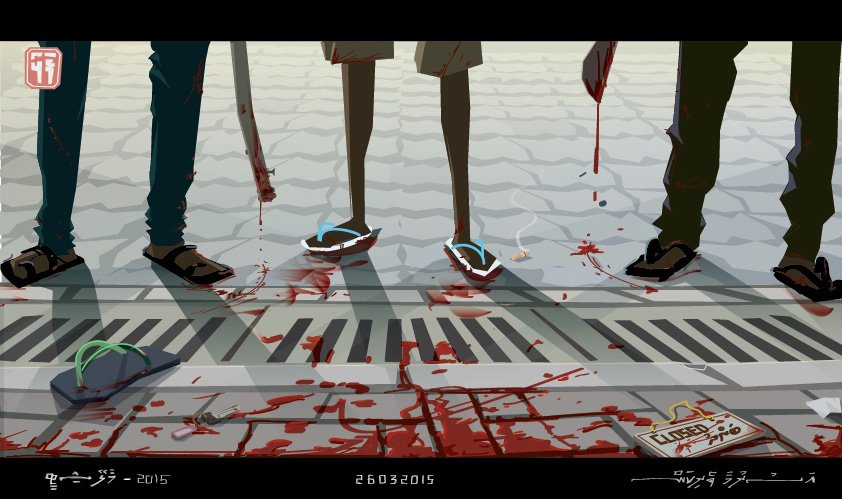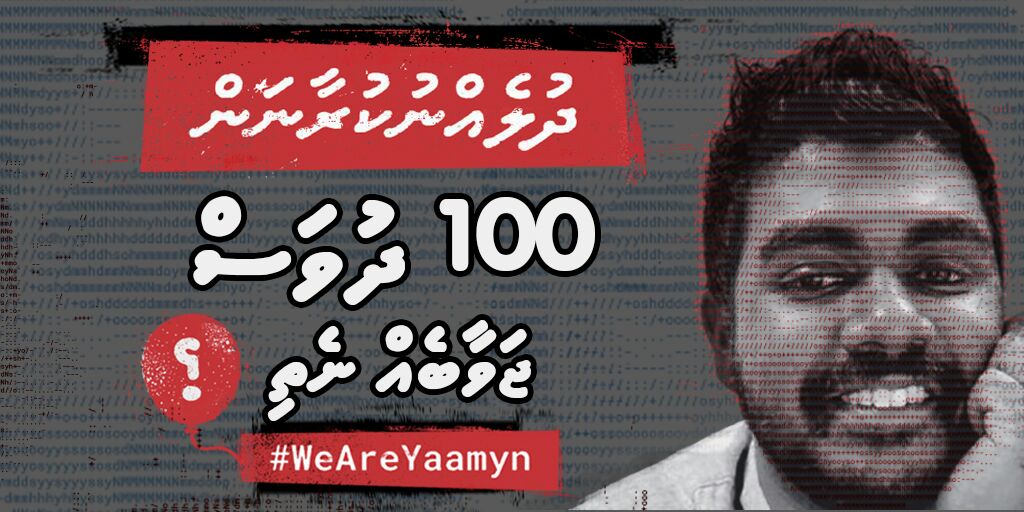The road to justice is paved with answers to Rilwan’s abduction

by Azra Naseem
In the early hours of the morning on 8 August 2014, journalist and blogger Ahmed Rilwan (28), was captured on CCTV boarding a ferry from Male’ to Hulhumale’. It is the last known and verifiable movements of Rilwan who, it has been widely reported, was abducted later that morning from his apartment in Hulhumale’.
It is three years to the day since Rilwan’s disappearance. Three years without any answers.
Who took Rilwan? Why? What did they do to him? Did they kill him? How? Or, is he alive? Why were the authorities so unconcerned at such a disappearance? Why did the police not investigate the crime? Why did the parliament refuse to accept a petition signed by over 5000 people asking it to look into why the crime was being ignored? Why did the police release all suspects in the case they eventually arrested?
Why the impunity?
In the early hours of the morning on 23 April 2017, writer and blogger Yameen Rasheed (29), returned home from work after staying late to finish a project. At least two men were waiting for him inside his apartment block. They attacked him viciously, stabbing him over thirty times all over his body. The police arrived at the scene about half an hour later. It was another 11 minutes before the police, instead of calling an ambulance, bundled Yameen into a police car and drove him to the hospital. Yameen died shortly after.
The police, meanwhile, set to work on the crime scene; not to process it, but to clean it up. Not only was the blood and other evidence washed away, the blood splattered walls were freshly painted.
Three months have passed since without any answers.
Why was Yameen killed? Why is the investigation a secret? Is there an investigation? Are the suspects in custody the ones who carried out the killing? Was it personal, or was it a contract killing? If so, who took out the contract? Was it violent extremists? Did they kill him for his anti-dictatorship satire? Did they kill him for being tolerant of other religions and minorities? Why have the police been so rude to his family? Why are they not giving any answers?
Why the impunity?
In the early hours of the evening on 31 July 2017, about ten masked men on five motorcycles whizzed past the heavy crowds on Male’s main street, Majeedhee Magu, at high speed. All of them were carrying sharp implements—machetes, knives—in plain sight. The headlights on their bikes were switched off. As they turned into a small laneway off Majeedhee Magu just past the Olympus Theatre, people stood frozen to the spot, afraid to say or do anything in case the men lashed out with their weapons.
Only a few short moments later the men were back on the laneway, this time riding towards Majeedhee Magu. They had just killed Ahmed Anas (25), a boat captain from the island of Raa Atoll Meedhoo.
As they rode at high speed they yelled at the public, in the filthiest language possible, to get out of their way. Child, woman or elderly, they did not care as they waved their weapons and threatened anyone that did not hasten to clear the way for them.
“The moment was full of fear. The men’s cruelty and their shouted warnings haunted the atmosphere”, reported local newspaper Addu Live*.
A week later, the police put 12 people in custody in connection with the murder. But no questions have been answered.
Why was Anas killed? Was it a case of mistaken identity as President Yameen—not the police, but the President—has informed the public? Or was it a contract killing? Was Anas killed by the jealous gangster ex-husband of his wife-to-be, as the family alleges? Why did the President move so fast to give the murder a particular flavour? Will the suspects be released, like they were in Rilwan’s case? Are those in custody merely the people who carried out the killing on a contract basis, like they are in the case of Yameen? If so, will the person who took out the contract be brought to justice, or will they be allowed to get away with it, like in the case of Yameen and that of Dr Afrasheem Ali before him?
Will the family get justice? Or will the devastated parents of Anas join those of Rilwan and Yameen on the streets, forced to turn their beloved sons into placards and hashtags and names on petitions that call out for justice in vain?
In the three years since the abduction of Rilwan the (non)actions of the Maldives Police Service (MPS), and the authorities that command it, have created and nourished a culture of impunity for criminals that has made Male’, the capital of Maldives, one of the most dangerous cities in the world to live. This year alone there have already been three murders on the two square mile island that over 150,000 people call home.
Residents of Male’ live in fear, hemmed in from all sides with no escape as the government closes all open spaces in the name of ‘development’. The Raalhugan’du area to the east where people used to go for runs, walks, chats, to surf, or just to breathe, is closed off to house Chinese labourers who are building an unnecessary bridge to an island just 10 minutes away by boat. The Sultan Park, once a lush green oasis in the centre of Male’ has been cordoned off for months on end, its ancient trees cut down to make way for an incomprehensible winter wonderland. Cafes, restaurants, streets, ferry terminals and all other public spaces have all been used for violent gangland attacks that have gone unpunished. Police are quick to cordon off any area they feel like, mostly when political dissidents—and/or those seeking justice—use them to gather peacefully to express their objections to the status quo of impunity.
With nowhere to go, residents of this island prison are forced indoors, both adults and children trapped inside small apartments, unable to enjoy life, unable to live life. Afraid for their lives.
Male’ City, or Male’ Shitty as many have come to call it, is a living hell for most of its residents.
And it is all because of the culture of impunity that Maldives Police Service has created, and allowed to flourish, in the three years since the abduction of Ahmed Rilwan.
To begin the end of this culture of impunity, the public must first be told what happened to Rilwan.
*The description of what happened on the night Anas was murdered is a translation of the account reported in Addu Live
The illustration is by Ahmed Fauzan
